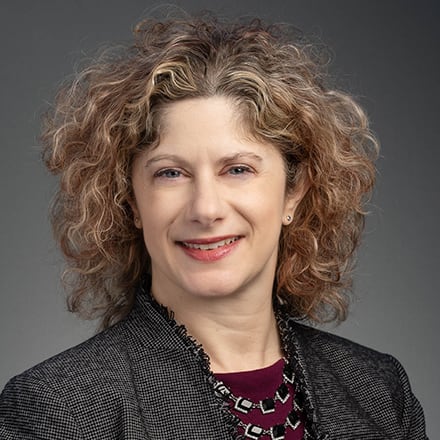How to Become a Therapist

Know before you read
At SNHU, we want to make sure you have the information you need to make decisions about your education and your future—no matter where you choose to go to school. That's why our informational articles may reference careers for which we do not offer academic programs, along with salary data for those careers. Cited projections do not guarantee actual salary or job growth.
The word “therapist” is a broad term that can encompass many mental health professionals. Counselors, social workers, marriage and family therapists, and psychologists are all considered therapists.
Depending on the individual, the geographic area in which they practice and their respective state licensure or regulatory practices, many mental health professionals use the term “therapist” to speak broadly about themselves. Regardless of what term is used, providing mental health services to clients is a meaningful way to offer help and support to others at the individual and community levels.
What Are the Steps to Become a Therapist?

According to Dr. Julie Graham, EdD, LPC, an instructor at Southern New Hampshire University (SNHU), the first step in becoming a therapist or counselor is to know what state you want to practice in and what steps are needed for that state. "Counseling license requirements vary depending on where you are located and it's important to know where you will be practicing and what is required in that state," she said.
Next, you'll need to decide which type of therapy you wish to provide.
"Make sure your education and training lines up with the population you want to work with," Graham said. "For example, if you want to work in areas such as addiction, the military, or autism spectrum disorder, you may need specialized training."
Once you've researched and decided what you'd like to practice, you'll need to fulfill the specific educational and licensure requirements for your state and specialty.
Learn more about how to become a mental health counselor.
What Degree Do You Need to Become a Therapist?
Most therapist positions require at least a master's degree, meaning you must first earn a bachelor's degree. Relevant social science programs include:
- Bachelor's degree in psychology: "Within the psychology program, a student can concentrate on industrial organizational psychology, addiction, child development, forensic, and overall mental health," Graham said. "No matter what a student chooses, an up-and-coming therapist is going to get real-world training based in research-backed psychological theories, which is the perfect setup for someone who wants to work in mental health."
- Bachelor's degree in sociology: Explore human behavior as it relates to social interactions and dynamics with an undergraduate degree in sociology. This degree program can help you gain new and broad perspectives and develop skills in research, analysis and problem-solving.
If you already have a bachelor’s degree in another field, don't worry. Most bachelor's degrees will provide the foundational concepts and information you will need to pursue graduate degrees in counseling. Graham also noted that your bachelor's degree might relate to the area of counseling you choose to specialize in. For instance, she recommended studying education if you intend on becoming a school counselor.
For most therapist specialties, such as clinical mental health counseling or clinical social work, the minimum education needed is a master’s degree. (SNHU is not currently enrolling new students in the graduate counseling program and does not offer a social work master's program.)

Although a specialized master's in counseling is often necessary to become a licensed therapist, Karen Raquel Quezada '21G became an in-home therapist shortly after earning her master's degree in psychology at SNHU. She first became interested in this field of work while obtaining a criminal justice degree — another discipline within the social sciences.
While working on her master's degree, Quezada felt each of her instructors and their varying backgrounds brought a lot of value to her. "The instructors were of great help (to) me," she said. "Their feedback allowed me to have a sense of knowledge of my strengths and things that I needed to work on."
Completing her capstone project was especially eye-opening for Quezada. It allowed her to reflect on all that she learned in her program and emerge important takeaways involving ethics, boundaries and more that she uses in her role as an in-home therapist.
"I do feel that my degree was worth it," she said. "It opened doors for me. It allowed me to grow in my personal and professional life."
You may find that a doctorate is required for certain specialty areas, such as a clinical psychologist or counselor educator. To become a psychiatrist, you'll need to go through medical school and residencies, according to the American Psychiatric Association. (Psychology, counseling and medical doctoral programs not currently available at SNHU.) If you're wondering how these professions vary, discover the difference between a psychologist and a psychiatrist.
Find Your Program
What Kind of License Do You Need to Become a Therapist?
It's important to note that there are different types of licenses required for different counseling specialties. The type of license required is determined by the mental health field you choose and the state in which you intend to practice.
Different types of licenses include:
- Licensed clinical mental health counselor (LCMHC)
- Licensed clinical professional counselor (LCPC)
- Licensed clinical psychologist (LCP)
- Licensed marriage and family therapist (LMFT)
- Licensed professional counselor (LPC)
Licensure requirements are top of mind at some counseling schools. For example, SNHU's online CACREP-accredited clinical mental health counseling degree is designed to help you meet the educational requirements in most U.S. states. It's important to see if there are any additional qualifications in your state to achieve licensure.
How Long Does It Take to Become a Therapist?
To become a therapist, you'll need to start your higher education with a bachelor's degree, which is often referred to as a four-year degree. A graduate degree is needed as well. The time it takes to get a master's degree varies by school and your pacing, but they are typically known to take at least two years.
Although it takes some students longer, Quezada's master's degree took her two years to complete as a mom working full-time. "This program had the opportunity for online classes, which was something I really needed as a single working parent," she said.
If you're wondering how online classes work, exactly, the format is similar to that of a face-to-face class; you can expect to participate in class discussions and complete assignments such as academic papers. The difference is you have the flexibility to decide when and where you complete your work each week.
Some types of therapists, such as a counseling psychologist, might require a doctorate degree. (Psychology doctorates not currently available at SNHU.) Other types of therapy practice require a master’s degree. (SNHU is not currently enrolling new students in the graduate counseling program.)
While in school, you'll also likely complete a practicum and obtain a certain amount of supervised experience to become licensed, according to the American Counseling Association.
Are Therapists in Demand?
The demand is growing for therapists and mental health professionals.* In fact, the U.S. Bureau of Labor Statistics (BLS) projects that employment of substance abuse, behavioral disorder, and mental health counselors will grow 19% from 2023 to 2033, which is much faster than the average for all other occupations.*
Do Therapists Make Good Money?
Because becoming a therapist is a tremendous time investment, you may not see a higher salary until you are licensed or working in a specialty.
Depending on the educational background, license, area of client focus and geographic location, salaries can vary considerably. For example, BLS notes the median pay for mental health counselors was $53,710 in 2023, while psychologists made a median of $92,740.*
Within counseling, there are many paths you can consider. For example, marriage and family therapists made a median of $58,510 in 2023, BLS reported — similar to the median annual salary for social workers, which was $58,380.*
What is the Job of a Therapist Like?
"Counseling is not just a job, but a career — and I would even say a passion," Graham said.
Although the job can vary based on specialty, according to BLS, the main duties of a counselor include:
- Evaluating clients' mental, physical and behavioral health
- Developing treatment plans and goals
- Supporting clients in developing necessary skills and behaviors
- Referring clients to additional support services when needed
As you might imagine, while the rewards of being a therapist are great, there are some significant challenges as well.
"The reality is working in mental health can be heavy at times," Graham said. "We listen to other people's problems all day and it's very easy to let that seep into our personal lives."
So, Is Counseling Right for You?
Becoming a therapist is a big investment of time and energy. Because it can take years to achieve licensure and become qualified to establish a practice or work full-time in your chosen area, this is not a career field to enter into lightly.
This is also a field that can be very rewarding for some but is not the right fit for everyone. For that reason, it’s worth taking the time upfront to research the different options within the field of therapy to decide if this is the right role for you.
Graham said it's important to weigh the pros and cons of this path before committing yourself to it. "You are working with people who are oftentimes at their lowest points in life and traits such as empathy, compassion and patience are a must," she said. "Make sure you have the heart for the profession."
A degree can change your life. Find the SNHU social science program that can best help you meet your goals.
*Cited job growth projections may not reflect local and/or short-term economic or job conditions and do not guarantee actual job growth. Actual salaries and/or earning potential may be the result of a combination of factors including, but not limited to: years of experience, industry of employment, geographic location, and worker skill.
A former higher education administrator, Dr. Marie Morganelli is a career educator and writer. She has taught and tutored composition, literature, and writing at all levels from middle school through graduate school. With two graduate degrees in English language and literature, her focus — whether teaching or writing — is in helping to raise the voices of others through the power of storytelling. Connect with her on LinkedIn.
Explore more content like this article

Academic Spotlight: Dr. Laman Tasch, Associate Dean of Academic Strategy, Social Sciences

Why Earning His BA in Political Science Mattered to Anthony Fernandez

What Can You Do With a Master’s in Criminal Justice?
About Southern New Hampshire University

SNHU is a nonprofit, accredited university with a mission to make high-quality education more accessible and affordable for everyone.
Founded in 1932, and online since 1995, we’ve helped countless students reach their goals with flexible, career-focused programs. Our 300-acre campus in Manchester, NH is home to over 3,000 students, and we serve over 135,000 students online. Visit our about SNHU page to learn more about our mission, accreditations, leadership team, national recognitions and awards.


